#Rayan Sarlak
Photo





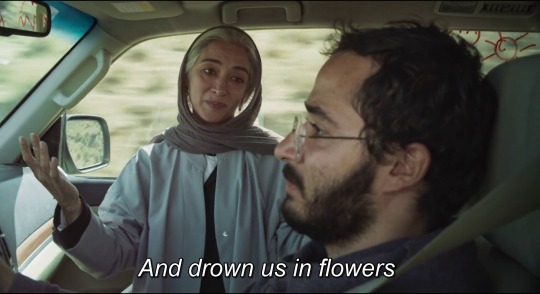
جاده خاکی [Hit the Road] (Panah Panahi, 2021)
#جاده خاکی#2020s cinema#Hit the Road#Persia#drama film#Iranian film directors#Cinema of Iran#family#Rayan Sarlak#Pantea Panahiha#Amin Simiar#Middle east#Jaddeh Khaki#Iranian New Wave#road movie#Kurdistan#desert#escape#Iranian filmmakers#migration#homeland#love#Lake Urmia#Hassan Madjooni#emotions#landscape#child#dark comedy#Iranian society#journey
285 notes
·
View notes
Photo
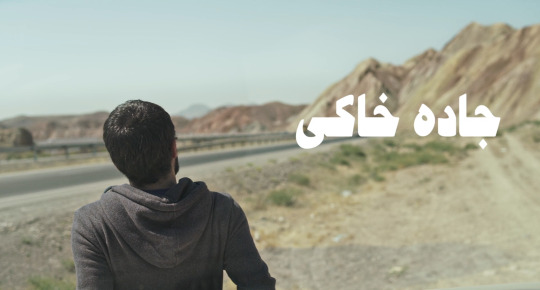
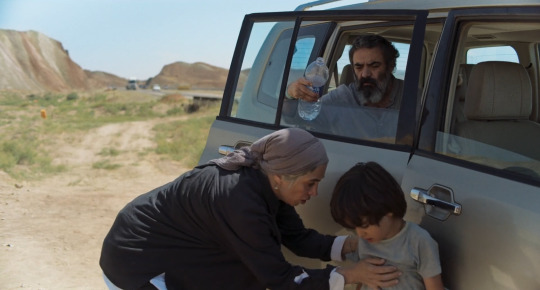
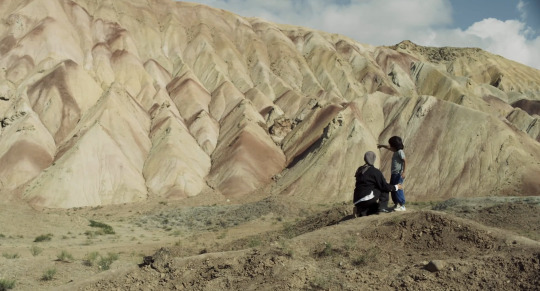
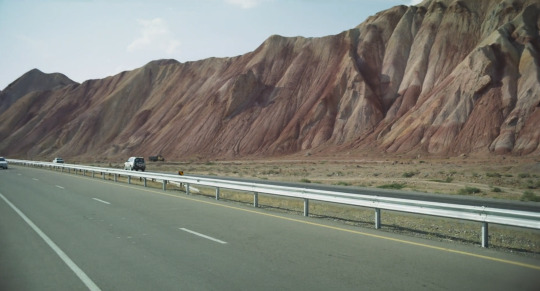
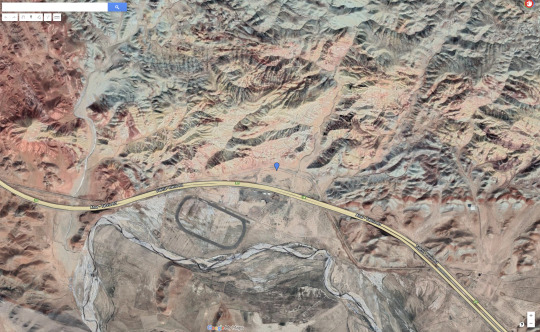
جاده خاکی / Hit the Road
Panah Panahi. 2021
Colorful Mountains
Ahar-Tabriz Road, Khajeh, East Azerbaijan Province, Iran
See in map
See in imdb
#panah panahi#جاده خاکی#hit the road#east azerbaijan#iran#khajeh#red#mountains#road#tabriz#opening titles#pantea panahiha#hasan majuni#rayan sarlak#amin simiar#movie#cinema#film#location#google maps#street view#2021
48 notes
·
View notes
Photo
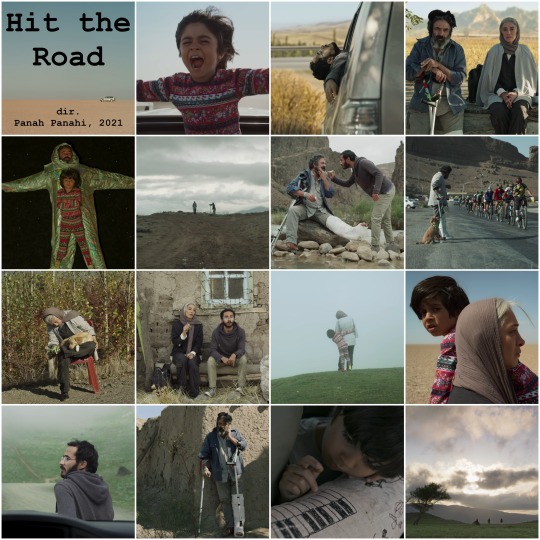
Hit the Road
directed by Panah Panahi, 2021
8 notes
·
View notes
Text
Film Review - Hit The Road (2021)
Film Review - Hit The Road (2021)
@caraendseat reviews this #worldcinema #panahpanahi @PicturehouseEnt #hittheroad
Hit the Road finds the audience in the borrowed car of a family in the midst of a road trip. In the backseat sits a rather grumpy Father nursing a broken leg. Next to him is six year old younger brother who is doing anything other than sitting. Driving the car is an introspective older brother and beside him in the passenger seat is Mother, exasperated by them all but without a doubt the glue…
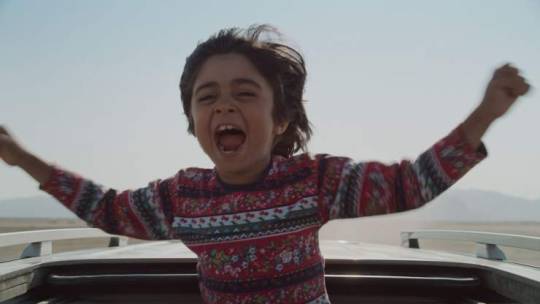
View On WordPress
#2021#Amin Simiar#Hassan Madjooni#Hit The Road#iran#Panah Panahi#Pantea Panahiha#Picturehouse entertainment#Rayan Sarlak
0 notes
Text
“Hit the Road,” Reviewed: A Mysterious and Thrilling Revelation from Iran
The début feature by Panah Panahi is a love story, a tragicomedy, and a triumph.
By Richard Brody
April 18, 2022
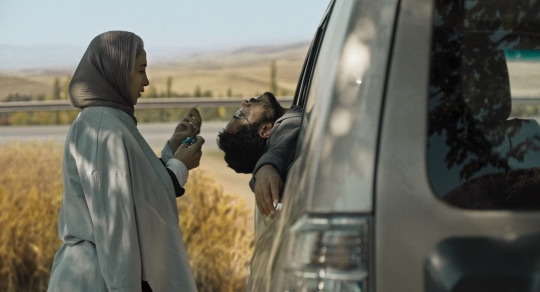
In “Hit the Road,” a family tries to circumvent a repressive government’s unjust laws.Photograph courtesy Kino Lorber
Mixed emotions reach a peak of political intensity in “Hit the Road,” the Iranian director Panah Panahi’s first feature, and a great one. There’s no way to make any sense of the film without giving away a detail that remains undisclosed until midway through; any substantive discussion of the film entails spoilers. What’s more, the drama depends on this cagey silence, its emotional price, and its political motive. The movie (which opens on April 22nd) involves a family of four on a road trip in an S.U.V.—a journey that is shrouded in mystery and filled with evasive behavior.
“Hit the Road” is a tale of fear and cunning, a thriller of sorts that involves the high risks of a criminal scheme and an intrepid escape. It begins on the dirt shoulder of a highway, where the parents—the father, Khosro (Hasan Majuni), and the unnamed mother (Pantea Panahiha)—are dozing and Farid (Amin Simiar), the elder son and driver, is pacing around outside. Soon, the cell phone belonging to the younger, unnamed son (Rayan Sarlak), who appears to be about seven years old, begins to ring—he’d been forbidden to bring it, and the other family members have left theirs behind, too. The mother confiscates it, removes and destroys the sim card, and buries the phone in a nearby field, marking the spot with a stone for the return trip. Moments later, back on the highway, the family realizes that they’re being followed, though it turns out to be a false alarm.
The spoilers begin here: the family, as it turns out, is heading toward the border so that Farid can be smuggled out of Iran and start a new life in another country. The motive isn’t clear, but he’s of age to do his two years of mandatory military service, and no Iranian man can apply for a passport without having fulfilled it. A trafficker has arranged the intricately plotted exfiltration at a shockingly high price: the family’s home and car. The paranoid secrecy that pervades the trip entails keeping its purpose from the boy, who is brilliantly imaginative and wildly impulsive. His parents don’t trust him to keep the secret in the presence of whomever they may encounter, and the journey is filled with odd and perilous meetings, including (in the film’s most sharply comedic sequence) a brush with a bike racer who gets a lift from the family after colliding with the S.U.V.
The premise of “Hit the Road” is the effort to circumvent a repressive government’s unjust laws. (Mohammad Rasoulof’s 2020 film “There Is No Evil” dramatizes one of the moral dangers that draftees face—namely, the possibility of being ordered to carry out an execution.) Above all, though, the movie is a love story, and a great one—it depicts the passionate bonds of a close family, and Panahi’s view of their love is all the truer and more vital for the acerbity and pugnacious candor of their relationships, the inescapable force of devotion and bonds of commitment amid anger, dismay, disappointment, seething resentment, and stifled incomprehension. The dialogue alone—and the film is a mighty torrent of intimate eloquence—catches the kaleidoscopic array of emotions that flicker and glare through even casual remarks, and the deep foundation of shared experiences on which the family’s every interaction, however minor, is intensified, as on a stage. The presence of the family’s dog, Jessy, whose mortal illness is also being concealed from the boy, adds another poignant touch that’s also a symbolic emblem of looming catastrophe.
“Hit the Road” is also a tragicomedy, in which the anguish of separation is heightened by the dangers of the journey, leavened by hope for a better future, and balanced by family togetherness. The mother struggles to repress her pain with exaggerated displays of artificial gaiety, including faux-exuberant lip-synching to Iranian pop music, but, in a moment of quiet, she asks Farid not to leave. Khosro, a sharply candid cynic, carps from the back seat, to which he’s relegated by a broken leg in a cast, with observations of penetrating clarity and bitter skepticism. While Khosro, at a rest stop, is speaking by phone with the trafficker about signing over the house, Farid cranks up the volume of a song on the car radio to drown out the discussion, agonizing as it is to hear talk of the sacrifice. Yet, when his mother gets sentimental, he tells her to go home; she responds, “What home, rude boy?” For good measure, she adds, “Shithead.”
The family relationships are depicted through a torrential blend of jovial ribaldry and vulnerable confession, with doubts muttered alone and misgivings kept silent—not least because of the young boy, who’s one of the most irrepressible and exuberant wild cards in the recent cinema. Sarlak’s performance bursts with energy and intelligence, and lends a spontaneity to the elaborate dialogue and fanciful action of this freewheeling and freethinking character, who is still unspoiled in his view of the life ahead and confident of emotional impulses that haven’t yet been clobbered down. He charmingly frets about losing his cell phone lest he miss a call from one Ms. Fakhrai—not the woman of that name, who lives near the family’s home, but her daughter, his peer and friend, whom he intends to marry. His heedlessness risks consequences, as when he draws with a marker on the window of the S.U.V.—which has been borrowed and needs to be returned in pristine condition—or when he calls enthusiastically out the window to a bike racer, resulting in the crash.
The resulting scene, in which the family gives the athlete a lift to a safe haven, offers a philosophical dialogue of rare and giddy delight—about law and obedience and their effect on the inner life—that’s capped with a moment of whiplash irony to match the accident that launched it. The whole sequence is framed like a teeming bit of automotive theatre, in which rapidly ricocheting fine points (including the mother’s subtle, hinted reminder to Khosro not to speak freely) whirl around the practical lessons in political morality that arise. Panahi elevates the tautly dialectical action into grand drama by way of carefully crafted framings that heighten the confined spaces and vast landscapes alike. His visual compositions are essential elements of his world view, whether in a poised side-by-side image of Farid and his mother evoking ineffable love at a rest stop with a discussion of “2001: A Space Odyssey” or an unbearable moment of separation that’s ingeniously filmed from hundreds of feet away, with heartbreaking reserve that nonetheless captures both its frantic energy and its poignant intimacy. Panahi’s visual correspondence of elisions and separations replicates the silences and mysteries that mark the characters’ own adventure.
Though “Hit the Road” is the first feature by Panahi, who was born in 1984, it’s merely the first flowering of a life in the cinema: he’s the son of the director Jafar Panahi, whose past decade of work has been undertaken both clandestinely and in defiance of the authorities—and on whose films he has been working in a variety of roles, including that of an editor. In Cahiers du Cinéma, Panah Panahi says that, though he attended film school, “The best film school was at home, where all the conversations revolved around cinema and where all the soirées were full of movie people.” Jafar Panahi was arrested in 2010 on political charges; he has been making films while enduring house arrest, a suspended prison sentence, and an official ban on filmmaking. (Khosro’s limited movement with a cast on his leg is a remarkable symbol of the limits placed on the elder filmmaker.) Panah Panahi’s work, while very much in the vein of Jafar’s, extends its reach, dramatically and thematically, for another generation. The modern Iranian cinema was launched into international prominence, about thirty years ago, by the films of Abbas Kiarostami; Jafar Panahi was his assistant. Kiarostami’s films are marked by a passionately attentive, documentary-like detail, rooted in aspects of Iranian life that are largely banned from the screen—a symbolic cinema that disguises its symbols in local and practical details.
“Hit the Road” extends that lineage, as a work of practical realism that stands as a manifesto for the imaginative power of observation and for the political power of the imagination. The action breaks away from the modern highway into the deep country, from the modern state into the wild, as the family approaches the border by driving on a dirt road. (“Dirt Road” is the literal translation of the movie’s Farsi title.) An interaction with a shepherd that takes place in a kind of spoken code, the terrifying arrival of a masked motorcyclist, and the shocking vision of a gathering, in the wild, of families of other so-called “travellers” evoke an alternative, outlaw society of danger and hope. Panahi marks it at the limits of fantasy, in text and in vision alike, as Khosro and the young boy link the family’s travels to a discussion about the Batmobile, matched by fantasy images that project father and son together, flying into outer space.
2 notes
·
View notes
Text
The 2023 Rosscars

Welcome to the third annual online publication for the Rosscars (hold for applause while the reader acknowledges the ceasless hilarity of the portmanteau of my name with “Oscars”). This year may not have been the easiest to get through, but there are only fond memories associated with the Rosscars - like when Joan Cusack took home a supporting actress Rosscar for her work in School of Rock and when Michelle Pfieffer won for Batman Returns. These are moments that we remember and cherish. Everyone. We all do.
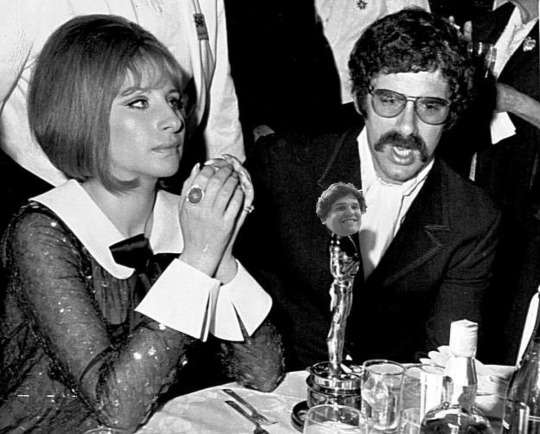
A few caveats and guidelines:
The rules and categories are a little different around here. In keeping with the Academy standard, there are five nominees in each category, except for Best Picture, Best Non-Fiction/Documentary Feature, Best International Film, and Best Ensemble which have up to ten. Every category except for those with 10 entries will have honorable mentions. I want to highlight some things that just barely missed the cut. The narrowing down of a lot of these categories is always tough, but I’m nothing if not a martyr for my medium *hold for rapturous applause*
Distribution continues to be more fractured and odd, so there’s only really one criterion for eligibility, and it seems self-evident: the nominees must have come out/become available between last year’s Rosscars and this year’s Oscar award nominations.
Nominees are listed alphabetically, and the winners are boldened.
Also, it’s important to keep in mind that I couldn’t see everything, and that these are just the opinions of one (self-described) “bozo on the internet.” If you’re a reader and have different picks, feel free to share!

The pre-show events were as rambunctious as ever. First was the longest held tradition of pre-show events at the Rosscars - the Vin Diesel look alike contest. Many bulky boiz showed up with bald heads and broad shoulders, but only one person went home victorious: from Italy, Vincenzo Dieselini. Rumors have started that it’s just Vin Diesel doing an impression of Super Mario. We’ve reached out to the folks at the Rosscars, but have yet to hear back from them.
There was also the Nepo Baby Career Raffle, where the children of A-C List celebrities gather to be selected at random for a middling career in an adjacent industry to their parents despite not having the experience or talent necessary to land the gig. Tonight’s big winners were the offspring of the donkeys used in the production of the Polish film EO (a film I have yet to see). The donkey from Banshees of Inisherin hee-hawed and stomped its way out of the theater.
Austin Butler is here, and yes, he is still talking in his Elvis voice. He keeps referring to people as “little mama” and it’s hilarious but also a bit uncomfortable.
O.J. Simpson is here. He wasn’t invited, but I certainly won’t be the one letting him know!
People are still reckoning with the fact that Ross has stepped in as tonight’s host. The identity of the original host for the evening is still under wraps, but our source, known to us and our readers as Cavernous Larynx, says they were once a “Fresh Prince” before becoming a “King Richard.” This reporter can only assume that means it’s a man who is a royal dick. Must’ve been a personality clash.
The first string of categories are about to be announced, and the crowd has a palpable sense of anticipation… that is until they see who the presenter is: Ross.
Best Supporting Actor
Cliff Curtis for Murina
Anthony Hopkins for Armageddon Time
Ke Huy Quan for Everything Everywhere All At Once
Justin Long for Barbarian
Steven Yeun for Nope
Honorable Mentions:
Rayan Sarlak for Hit the Road
Michael Wincott for Nope
Judd Hirsch for The Fabelmans
Benny Safdie for Stars at Noon
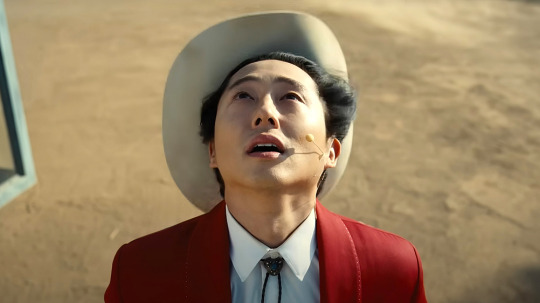
This is Steven Yeun’s second Rosscar win, the first being for his revelatory performance in Burning. What a talented young man with a distinguished track record - and he still has an incredible career ahead of him. Thank god he was freed from the manacles of being on “The Walking Dead.”
Best Supporting Actress
Kerry Condon for Banshees of Inisherin
Dolly De Leon for Triangle of Sadness
Chloe East for The Fabelmans
Nina Hoss for TÁR
Kristen Stewart for Crimes of the Future
Honorable Mentions:
Stephanie Hsu for Everything Everywhere All At Once
Julia Butters for The Fabelmans
Angela Bassett for Wakanda Forever
Danica Ćurčić for Murina

Best Animated Film
Apollo 10 ½, dir. Richard Linklater
Beavis and Butt-Head Do the Universe, dir. John Rice & Albert Calleros
Mad God, dir. Phil Tippet
Turning Red, dir. Domee Shi
Wendell & Wild, dir. Henry Selick
Honorable Mention:
Marcel the Shell with Shoes On, dir. Dean Fleischer Camp

Turning Red is a joyful, specific, and rich story about the push and pull of culture and family in forming one’s identity. The fact that it was done with a new spin on the Pixar aesthetic and embraced kaiju and monster movie allegory to talk about puberty and coming into one’s self is brilliant. I was glowing the entire time while watching.
Best Cinematography
Matias Boucard for Athena
Greig Fraser for The Batman
Florian Hoffmeister for TÁR
Hoyte van Hoytema for Nope
Kim Ji-yong for Decision to Leave
Honorable Mentions:
Roberto De Angelis for Ambulance
Sayombhu Mukdeeprom for Thirteen Lives
Hélène Louvart for Murina
Claudio Miranda for Top Gun: Maverick
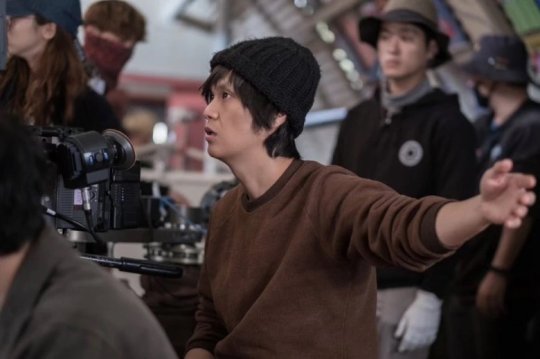
I truly don’t know how Kim was able to pull off some of the shots in Decision to Leave, and it’s almost like a magic trick - part of me wants to know how the crew was able to do things like the mirror shots in the first interrogation, but I’m also so amazed and satisfied that I want to keep it a mystery.
Best Trailer:
Black Panther: Wakanda Forever - watch here
The Northman - watch here
TÁR (teaser) - watch here
Three Thousand Years of Longing - watch here
Top Gun: Maverick - watch here
Billy Crystal takes the stage to do a short little riff about some of the stars in the audience. So many middling, half-assed jokes, how can you choose which one you dislike the least? There’s the one about Uncle Vanya Taylor-Joy. Ana de Armas-geddon Time. Seth Rogaine. Pre Malone. It appears that just about every audience member has started chatting with their neighbor, and the producers are worried that due to the lack of audience engagement, Crystal may go rogue and try to hook them back in with his go-to Sammy Davis Jr. impression that he did as recently as the 2012 Oscars. For those that don’t remember - yes, he absolutely did it in blackface - yeesh!
Coming out to reign in the spectators like they were a group of cats and the mic was a laser pointer is the host, Ross. He delivers the prelude to introduce the next three categories.
Best Final Scene
Decision to Leave
The Fabelmans
Flux Gourmet
Murina
TÁR
This is a new category this year created by the sheer number of outstanding dismounts from some of the best films of the year. Endings are often the hardest part of any movie to pull off, but these 5 movies not only wrapped things up, but did so with thematic clarity and emotional resonance.
Best Score
Michael Abels for Nope
Michael Giacchino for The Batman
Jo Yeong-wook for Decision to Leave
Cliff Martinez for Kimi
Howard Shore for Crimes of the Future
Honorable Mentions:
Hildur Guðnadóttir for Women Talking
Aska Mastumiya for After Yang
Trent Reznor and Atticus Ross for Bones and All
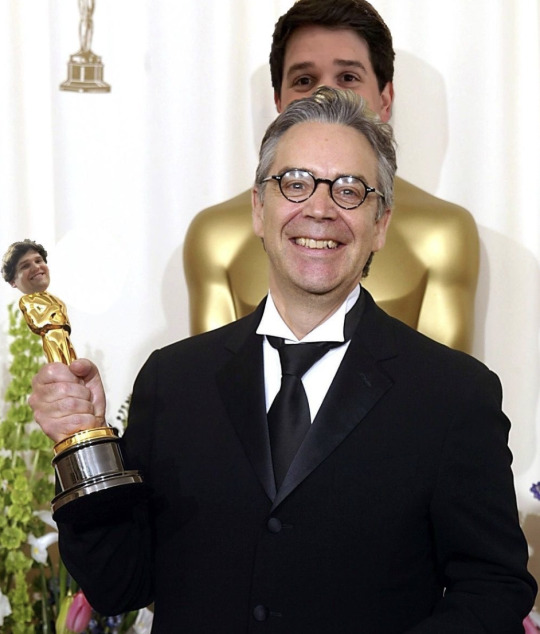
Notable Needle Drops:
“Be My Baby” by The Ronettes in Barbarian
“Last Dance” by Donna Summer in Fire Island
“The Mist” by Jung Hoon Hee in Decision to Leave
“Sailing” by Christopher Cross in Ambulance
“Won’t be Fooled Again” by The Who in Top Gun: Maverick
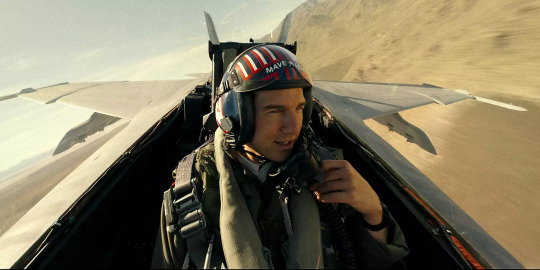
Best Ensemble
After Yang
Crimes of the Future
Everything Everywhere All At Once
Fire Island
Nope
Scream
Thirteen Lives
Top Gun: Maverick
Triangle of Sadness
Women Talking

Best International Film
Decision to Leave, dir. Park Chan-wook, South Korea
Hit the Road, dir. Panah Panahi, Iran
Murina, dir. Antoneta Alamat Kisujanović, Greece
Neptune Frost, dir. Saul Williams & Anisia Uzeyman, Rwanda & USA
Petite Maman, dir. Céline Sciamma, France
RRR, dir. S.S. Rajamouli, India

This year’s Lifetime Achievement Rosscar goes to prolific and ever-dependable character actress Beth Grant. While you may not recognize the name, one Google (or Bing for the weirdos) search will make you go “ohhhhh” as you recognize the face of a performer who always delivers memorable turns. Congratulations, Beth Grant - you’ve entered the pantheon of award winners alongside makeup designers like Rob Bottin, Jack Pierce, and John Chambers, actors like George Kennedy and directors like George A. Romero.
Best Screenplay
David Cronenberg for Crimes of the Future
Todd Field for TÁR
Martin McDonagh for The Banshees of Inisherin
Jordan Peele for Nope
Tony Kushner and Steven Spielberg for The Fabelmans
Honorable Mentions:
Panah Panahi for Hit the Road
Celine Sciama for Petitie Maman
Domee Shi and Julia Cho for Turning Red
Saul Williams for Neptune Frost

Nope is Peele’s best film yet, so it’s unsurprising that it took home a screenplay Rosscar tonight. It’s a true marvel for simultaneously overflowing with wit and complex ideas while still being a rich character piece and arguably an even better genre picture. Engaging with and interrogating spectacle while examining the cost it takes to create it and the disposability with which it’s received - the dude has his cake and eats it, too. In my opinion, that’s pretty neat!
Best Adapted Screenplay
Kogonada for After Yang
David Cogeshall for Orphan: First Kill
Erin Kruger, Eric Warren Singer, & Christopher McQuarrie for Top Gun: Maverick
George Miller and Augusta Gore for Three Thousand Years of Longing
Sarah Polley for Women Talking
Honorable Mentions:
Henry Selick & Jordan Peele for Wendell & Wild
Lena Dunham for Catherine Called Birdy
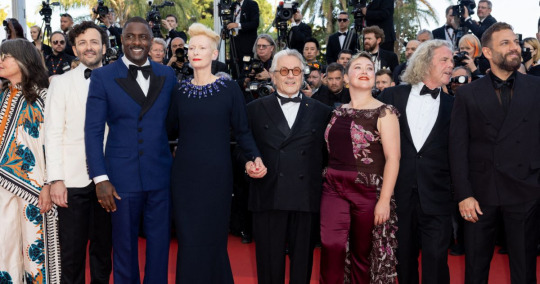
In a performance that will hopefully remind people to check out the superlative third entry in the franchise, Channing Tatum and the Magical Michael boys are now taking the stage to perform. They start krumping, gyrating, and doing all sorts of lascivious contortions. Olivia Colman is cheering, Bradley Cooper is shedding a tear of joy, and Glenn Close is blaring sound from a vuvuzela she must have brought from home.
Sure to put out the fire of excitement is our next presenter, Ross.
Best Actress:
Cate Blanchett for TÁR
Rebecca Hall for Resurrection
Keke Palmer for Nope
Tang Wei for Decision to Leave
Tilda Swinton for Three Thousand Years of Longing (and The Eternal Daughter)
Honorable Mentions:
Mia Goth for Pearl
Gracija Filipović for Murina
Michelle Yeoh for Everything Everywhere All At Once
Michelle Williams for The Fabelmans
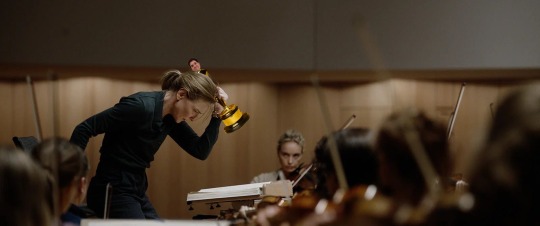
Blanchett’s win felt a bit like an inevitability, but it was nearly a split decision between her and Tang Wei who won as recently as 2007 for Lust, Caution. This is a decision (to leave) that has, embarrassingly, caused the voting board (read: Ross) to lose sleep.
Best Actor:
Tom Cruise for Top Gun: Maverick
Paul Dano for The Fabelmans
Idris Elba for Three Thousand Years of Longing
Colin Farrell for After Yang (and Banshees of Inisherin & Thirteen Lives & The Batman)
Hassan Madjooni for Hit the Road
Honorable Mentions:
Daniel Kaaluya for Nope
Gabriel LaBelle for The Fabelmans
Viggo Mortensen for Crimes of the Future
This was a strange category, honestly, and the last one that I settled on a winner. Elba, however, feels like the right choice considering how he’s able to walk the incredibly thin tonal tightrope of the movie he’s in, embodying a being beyond humanity while also simmering with operatic emotions that inevitably boil over.
Best Non-Fiction/Documentary Film
All the Beauty and the Bloodshed, dir. Laura Poitras
Fire of Love, dir. Sara Dosa
Is that Black Enough For You?!?, dir. Elvis Mitchell
Jackass Forever, dir. Jeff Tremaine
Navalny, dir. Daniel Roher
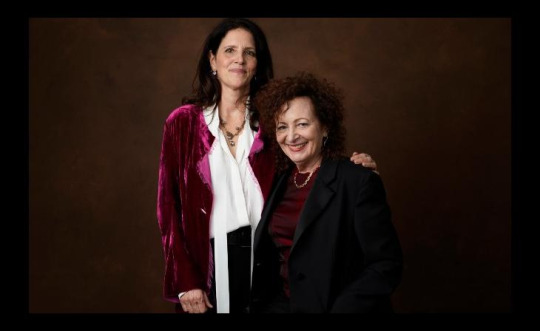
Best Director:
Todd Field for TÁR
Kogonada for After Yang
Park Chan-wook for Decision to Leave
Jordan Peele for Nope
Steven Spielberg for The Fabelmans
Honorable Mentions:
David Cronenberg for Crimes of the Future
Daniels for Everything Everywhere All At Once
SS Rajamouli for RRR

Best Picture
After Yang, dir. Kogonada
Avatar: The Way of Water, dir. James Cameron
Crimes of the Future, dir. David Cronenberg
Decision to Leave, dir. Park Chan-wook
The Fablemans, dir. Steven Spielberg
Nope, dir. Jordan Peele
RRR, dir. S.S. Rajamouli
TÁR, dir. Todd Field
Top Gun: Maverick, dir. Joseph Kosinski
Turning Red, dir. Domee Shi

Cate Blanchett and Todd Field (wearing a ball cap, duh) take the stage to accept the award and deliver a perfectly pitched speech that is somehow humble, confident, funny, and moving. Those two rock. But it seems like they’re being played off stage by the orchestra - this never happens at the Rosscars, let alone during the biggest award of the night. The camera pans down to the orchestra pit and it seems that the conductor is… Lydia Tár?! Oh how the once mighty have fallen.
From the first moment I saw it, I knew that TÁR would be the one to take home the big prize. Eerie and ethereal, but also richly realized in its characters and environments, the film is a masterpiece. It’s propelled by the unease of crumbling foundations and hypnotic interrogations. No film from this year has lodged itself so securely in the firmament of my mind.
As always, these awards can be revoked and redistributed at will, so don’t start getting too confident with that statue, Idris - Paul Dano might go full Riddler mode and take it from ya.
For more thoughts on film, and a whole bunch of other junk, you can find me on Letterboxd here and on Twitter here. You can also find very sporadic pieces on this very same blog space: (that’s https://phantomofthepairofdice.tumblr.com/).
On behalf of the RAOGL (Rosscars Association of One Guy at a Laptop), thanks for reading. We’ll see you next year. Keep watching movies, and keep arbitrarily quantifying them in terms of subjective quality!
0 notes
Link
I saw this film in the cinema today. You should totally go see it. It’s a very humanistic, charming, moving, picture, and often very funny. But it’s sad as well. As in, it’s a 90 minute movie that’s capable of tearjerking sadness – which is a very hard thing to do. The kid actor in it (pictured above^) is terrific; and it’s also super rare for a child so young to be so good. He must be like six years old. … … Erm, yes, I give it 5/5. Hands down. The cinematography as well. The way there are these stationary landscape shots, whereby three/five minutes of action and dialogue liaise in the distance. Just wonderful.
1 note
·
View note
Text
Hit the Road: Panah Panahi's irresistible road movie
Hit the Road: Panah Panahi’s irresistible road movie
Film title:
Hit the Road
Director:
Panah Panahi
Starring:
Hassan Madjooni, Pantea Panahiha, Rayan Sarlak, Amin Simiar
Release date:
29 Jul
Certificate:
12A
Iranian filmmaker Panah Panahi’s debut feature is kind of a miracle. Not just because it was shot under a regime so strict that Panahi’s own father, acclaimed director Jafar Panahi, has been legally forbidden from practising his…
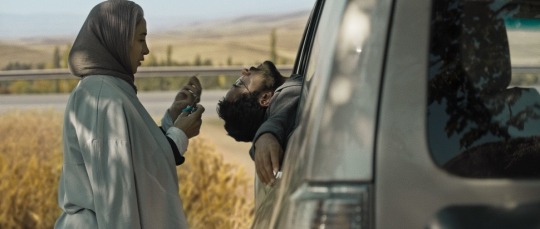
View On WordPress
1 note
·
View note
Photo
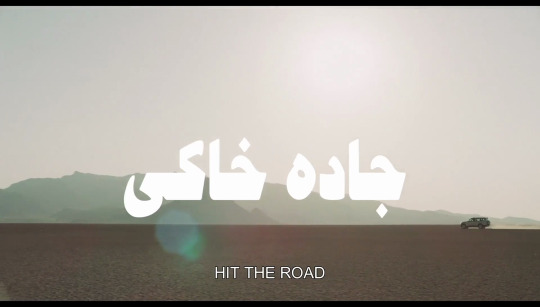
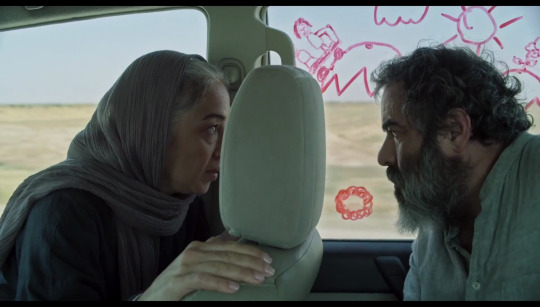
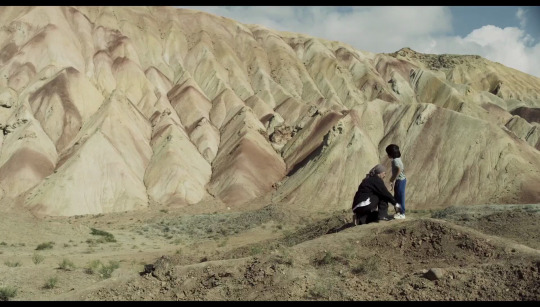
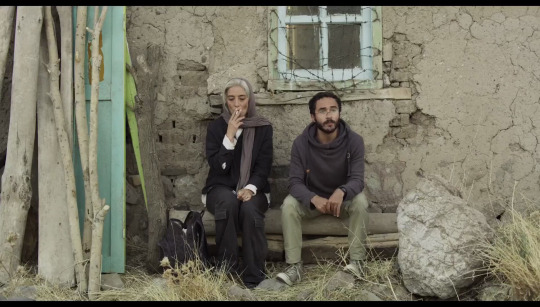
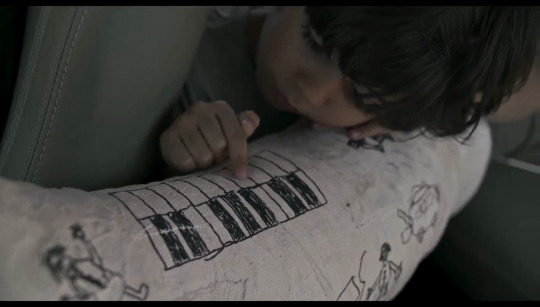
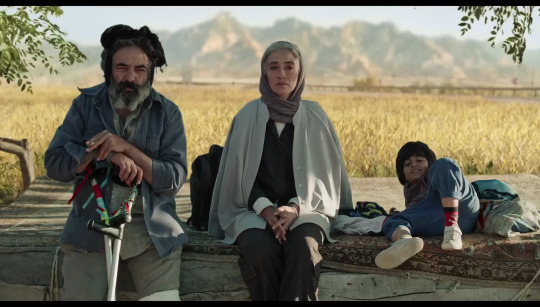
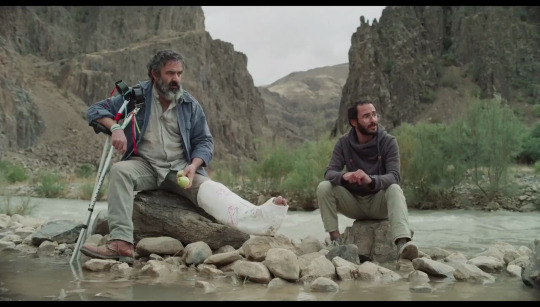
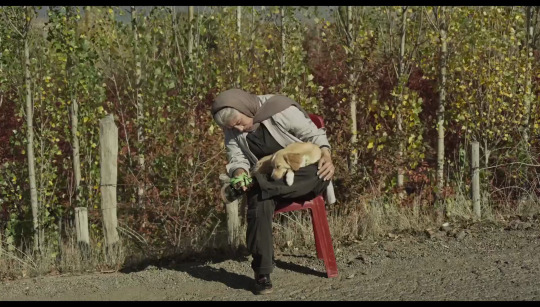
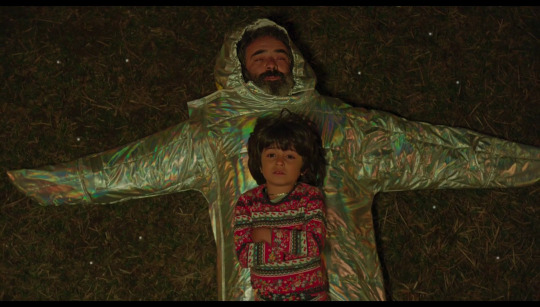
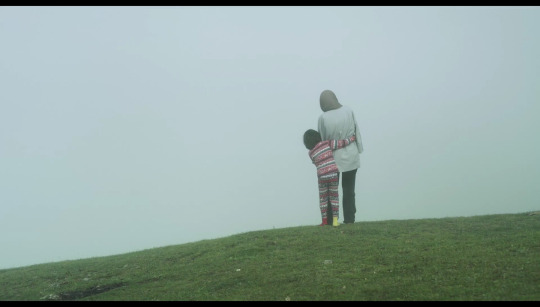
Hit the Road (Panah Panahi, 2021)
#films watched in 2022#Hit the Road#Panah Panahi#Jadde Khaki#debut#Hassan Madjooni#Pantea Panahiha#Rayan Sarlak#Amin Simiar#iran#drama#comedy#family#title credits#road movie#long shot#dogs#car#cars#smoke#hug#hugs#seis
471 notes
·
View notes
Photo
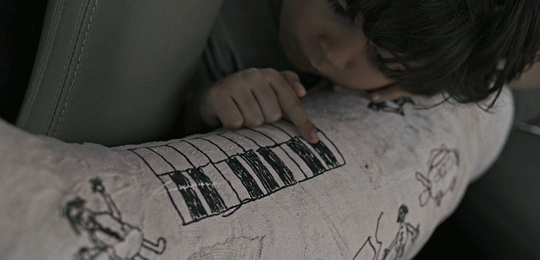
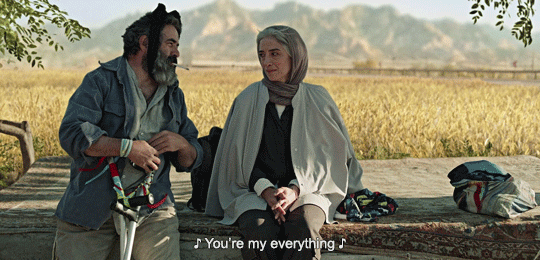
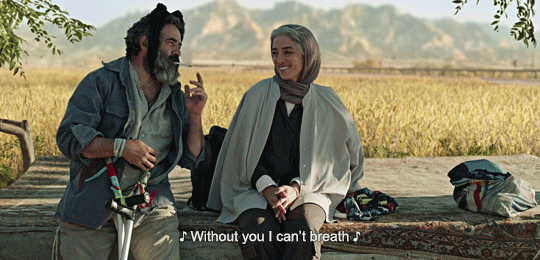
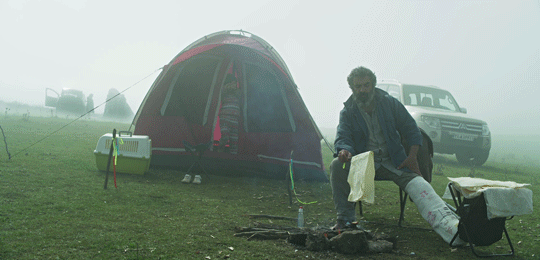
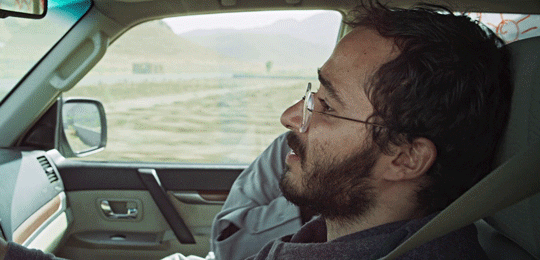
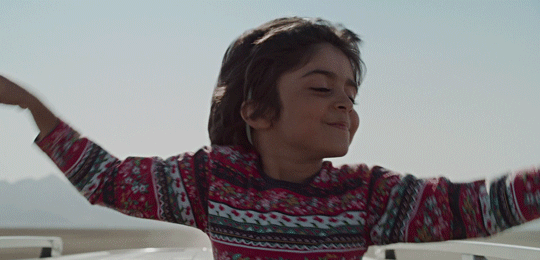
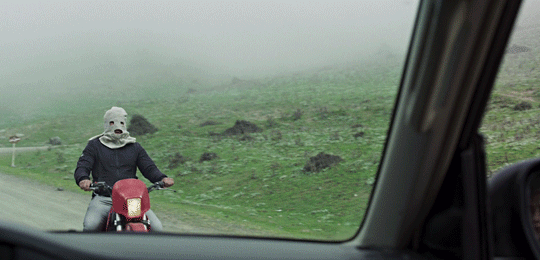
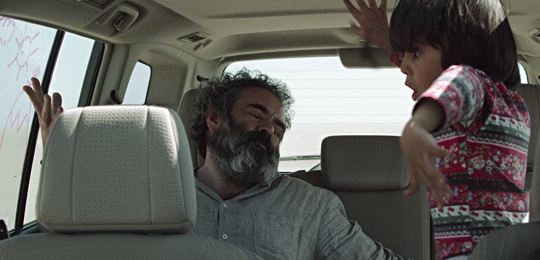
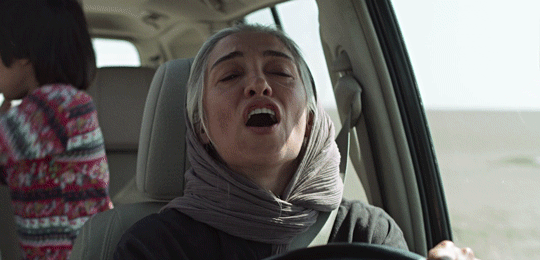
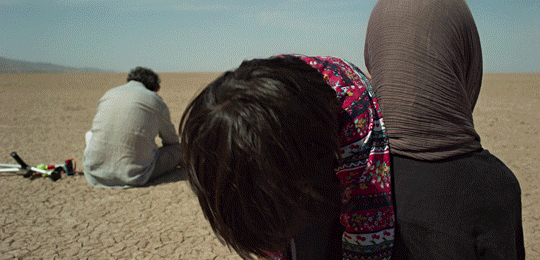
Hit the Road (2021)
Dir. Panah Panahi
#Hit the Road#Hit the Road 2021#جاده خاکی#Jaddeh Khaki#panah panahi#Panahi#Hassan Madjooni#Pantea Panahiha#Rayan Sarlak
41 notes
·
View notes
Photo
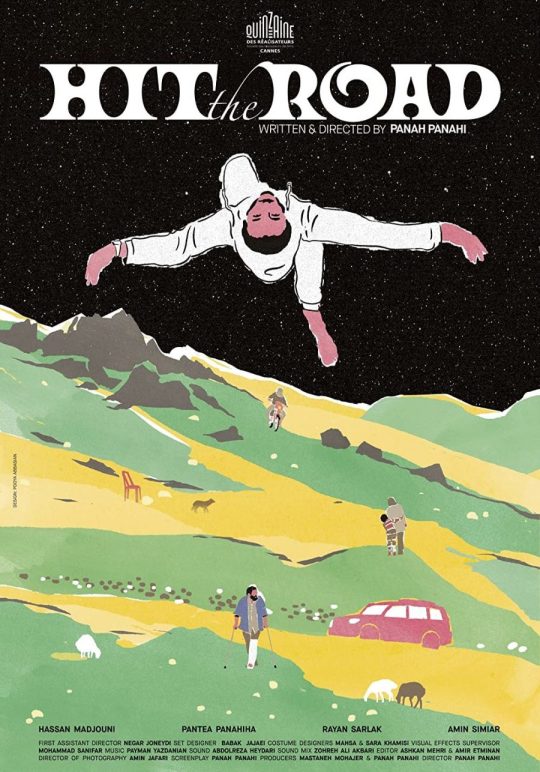
Hit the Road - Panah Panahi (2021)
Poster
#hit the road#panah panahi#iran#2021#2020s#comedy#cannes film festival#quinzaine des realisateurs#jp productions#poster#hassan madjooni#Jadde Khaki#drama#pantea panahiha#rayan sarlak#amin simiar
15 notes
·
View notes
Photo

جاده خاکی [Hit the Road] (Panah Panahi, 2021)
#جاده خاکی#drama film#Hit the Road#2020s cinema#journey#Iranian film directors#Cinema of Iran#family#Rayan Sarlak#Pantea Panahiha#Amin Simiar#Middle east#Jaddeh Khaki#Iranian New Wave#road movie#Kurdistan#escape#desert#Iranian filmmakers#migration#homeland#love#Lake Urmia#Hassan Madjooni#emotions#landscape#child#dark comedy#Iranian society#Persia
90 notes
·
View notes
Photo
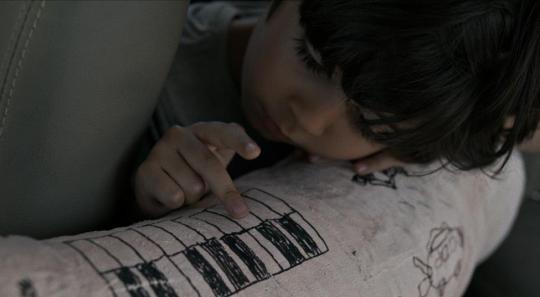
Seen in 2022:
Hit the Road (Panah Panahi), 2021
5 notes
·
View notes
Text
Hit the Road
Recensie Hit the Road ★★★1/2 - vanaf 27-1 te zien op @IFFR en vanaf 21-4 in de bioscoop
Een eigenzinnige, humorvolle, maar ook beladen roadmovie over een naderend afscheid in een eigenzinnig Iraans gezin.
#IFFR2022 #IFFR
De dramafilm Hit the Road gaat over een Iraans gezin dat met de auto op de vlucht is. Op de vlucht waar naartoe en voor wie is onduidelijk, maar naarmate de reis vordert, komt er steeds meer pijn. Wat wij van Hit the Road vinden, lees je in onze recensie.
(more…)
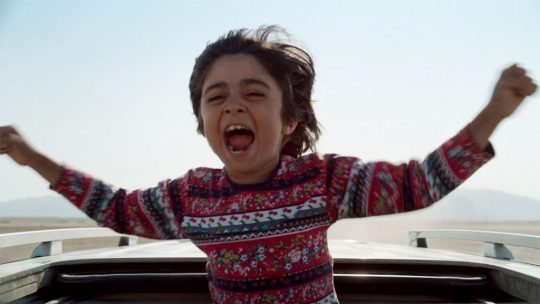
View On WordPress
#Amin Simiar#bioscoop#Cherry Pickers#dramafilm#Film Incompany#Hassan Madjooni#IFFR#Panah Panahi#Pantea Panahiha#Rayan Sarlak#review
0 notes
Text
Panah Panahi's Festival Favourite Hot The Road Gets A UK Trailer
Panah Panahi’s Festival Favourite Hot The Road Gets A UK Trailer
When it comes to Iranian cinema Jafar Panahi is one of the leading names. Last year at 2021 Cannes Film his son Jafar made his debut with Hit The Road and this July that it arrives in the UK. Picturehouse have now released the film’s delightful UK Trailer.
The Panahi’s directorial feature has been collecting rave reviews as it hit the ‘festival’ road including been named ‘best film’ at last…
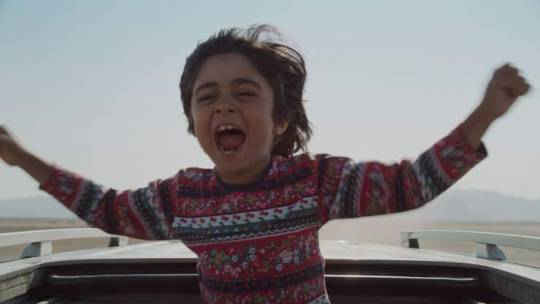
View On WordPress
#2021#Amin Simiar#Hasan Majuni#Hit The Road#iran#jafar panahi#Pantea Panahiha#picturehouse#Rayan Sarlak
0 notes
Text
‘Hit the Road’ Boasts One of the Most Magical Child Performances You’ll Ever See
‘Hit the Road’ Boasts One of the Most Magical Child Performances You’ll Ever See
Kino Lorber
Rayan Sarlak is the scene-stealer of the year, a force of personality so exuberant and endearing that Hit the Road can barely contain him—not that it would want to under any circumstances. A pint-sized motormouth who can’t stop asking questions, crawling about the backseat of his family’s SUV (and the father who shares it with him), and running around with reckless abandon, his voice…
View On WordPress
0 notes